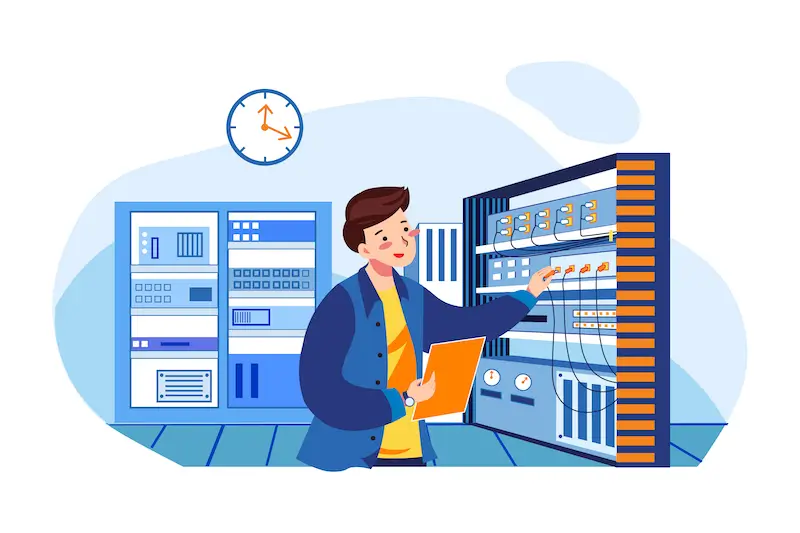
Memory Arrangements: Implicit vs. Explicit Systems Of Memory
Table of Contents
Human brains are constructed in a way that it has conscious processes and unconscious perception. Some mental functions exist for processing the instructions on performing regular and routine activities, for example, how to jump rope or use a washing machine. We simply have this knowledge and don’t need to activate our recalling capacity to use this kind of data and apply ordinary abilities.
The human body already knows what to do to jump rope or which pedals should be pressed to select the correct washing cycles. The mind is prepared to act without our conscious intention – all this is about our implicit memory. Though, to absorb new data that does not fall into the category of automatic and intuitive encoding, we must consciously trigger our memorization mechanisms. This is an explicit type of encoding when we intentionally strive to memorize something for its further retrieval. Both memorization systems are pivotal because they affect how we perceive the world, respond to an array of triggers, and achieve our goals.
What is Explicit Memory: Its importance for our cognitive performance
When one wants to deliberately reproduce some piece of data (for example, actions to prepare a delicious pasta), these details can be found in explicit memory. This type of memorization is used daily for academic purposes and studying, remembering your social network password, or learning specific professional skills. It is well-documented that such cognitive function as conscious encoding can fade with age. Knowledge and abilities gained through this memory mechanism can simply decay and be erased, while adeptness will be lost due to different reasons (lack of memory training, health issues, poor mental performance). Individuals must seek to improve memory, no matter why it was declined, as it entails considerable memory risks that may burden you and create many inconveniences.
One of the explicit memory examples is keeping in mind special dates, such as anniversaries or someone’s birthday. With waned abilities to encode these dates voluntarily, one will definitely struggle with calling to mind those dates on time. Probably, you will agree that missing birthdays are not a very pleasant life experience. However, once your declarative type of memory becomes stronger, there won’t be such unwanted episodes that make you uncomfortable and frustrated. But with poor retrieval of this kind of data, your career, academic, and personal growth can stagnate. Exam preparation and passing will be an uphill struggle since encoded facts and definitions will not be stuck to your memory and escape your mind storage. To break free from limits, you can use some powerful brain aids and reinforce your recall with the help of a memory palace and devices to help you overcome mind-numbing.

Explicit Types of Encoding
Like a private journal, episodic memory documents your own life episodes and events—like your last birthday or a trip of note. Semantic storage, on the other hand, stores broad information including facts, ideas, and meanings, much like an encyclopedia does. Both are within conscious recollection. Semantic memories are primarily about factual material; episodic memories are context-rich and linked to particular events. They, taken together, provide a complete encoding system.
Implicit Types of Encoding
Procedural memory lets you drive a vehicle or play the piano without conscious thinking. Priming affects your reactions and impressions; for example, finishing a word puzzle quicker when you have seen similar terms previously.
Main Differences
Retrieving material from an explicit memory—including your most recent trip—requires focused effort. Conversely, implicit memory organically facilitates activities like riding a bike or using a computer without conscious awareness.
Thus, comparing explicit vs implicit memory, one’s awareness of encoding episodes is a key difference.
| Explicit Memory | Implicit Memory |
| Involves conscious recollection of details | Manifests through automatic, learned behaviors |
| Typically tested through recall or recognition tasks | Typically assessed through performance-based tasks |
| Can be verbally described and communicated | Often difficult to articulate and explain |
Explicit Memory modes: Launch them for more efficient memorization
The first and the most critical mode of memorization is known as the semantic type. It is devoted to grasping complex meanings and facts. To retrieve the name of the presidents, all the countries of South America, how to say numbers or colors in a different language, or the names of oceans, you have to access this type of explicit memory. One more memory style is episode one. It is more about your personal memories that can be re-experienced at some point in life. This is why you can remember emotions gained on your first school day or sensations associated with doing something for the first time, e.g., bungee jumping or visiting a new city. Episodic type of memories is also about recent events, e.g., what did you buy the last time you visited the store?
Being capable of stimulating several memorization modes, the speed of recalling will be faster by several times too. For example, when future doctors need to remember the structure of the bony skeleton, long-term semantic type in combination with photographic memory can be activated for better results. Thus, it is possible to hold not only textual definitions but also visually retain the image of the skeleton. Visual episodic memory supports any of your intentions to keep complex information longer. It boils down to applying your imagination and probably visualization. The same situation with semantic memorization. No learning process will be successful without it. Your task is to make your brain a holistic powerful cognitive system where all functions and mechanisms are interconnected and work together in harmony to produce striking mental results.
Explicit Memories example: How quickly you can recall the capitals or planet names
Imagine someone asking you how many continents are there or what China’s capital is. You need to access explicit memory to give the correct answer because this is where all the facts are located. This memory type appears to be one of the most frequently used, so it must be strong. Thus, recalling well-known facts, e.g., that the capital of Australia is Canberra or that our solar system is made up of eight planets, can take several seconds or minutes. It depends on how often you mention this fact and how firmly it is stuck in your memory. Rehearsal is the key to quickly answering simple questions about the world.
Explaining Implicit Memory
It would be impossible to reproduce some kind of vital information without implicit memory. This is where we intuitively draw knowledge about how to ride rollerblades or make tasty toast and coffee with milk for breakfast. Although these kinds of instructions are not purposefully remembered, their recollecting still occurs. They influence our behavior and perception, as well as how we perform a number of ingrained tasks, such as putting on make-up or cutting vegetables. This memory is vital because this is why you can still swim after years of not swimming. Of course, such skills can be improved; however, basic reflexes will remain in your implicit memory, and you will be able to swim without thinking about how to do it.

Examples of Unintentional Memorization
We use implicit memories quite often. Most of us tend to start our day by brushing our teeth or any other morning routine. In some sense, even being able to hold a conversation is a task for this type of memory. If we didn’t have such a mechanism for processing information, we would not be able to use our native language or lack any motor skills, without which our existence is impossible. This fact shows us how important non-declarative memories are.
What is the key difference between these two systems?
Information that you encode and memorize, making significant mental efforts, is an explicit type of memory. When we try to remember answers for exams, we activate exactly the explicit mechanism. Data we put into our storage without being aware that we do it is known as implicit memory. We launch this memory system to gain such abilities as riding a horse, typing on the laptop, or cooking cakes. It means that we simply don’t focus on remembering and are unaware that encoding has occurred.
Can you improve your long-term memory?
Unlike short-term memories, such as echoic memory, which we can train in a fun way, for example, by listening to different kinds of music or learning to play unusual musical instruments to improve our musical ear, long-term memory is harder to train. It requires one to be heedful, strongly focused, and consistent. Such memories must be placed somewhere in our brain for the longest time, as knowledge and experience that we encode directly affect our IQ, abilities, working capacity and performance, and learning. So having poor long-term encoding may thwart one from attaining striking results in any life area. But to outperform your current accomplishments and become a better version of yourself, you must energize your brain and nourish your memory. It gives an inroad to gaining lots of great benefits. Your mind will become more creative and fight a lack of original ideas and thoughts at ease.
FAQ
Is biking an Explicit Memory?
Remembering how to ride a bike is not a task for explicit memory since it is not responsible for intuitive actions.
Is driving an Implicit Memory?
Driving is an automatic and reflexive type of memory. So once you need to go somewhere by car, your brain will respond to the stimuli unwittingly since it already knows how to start the engine, where is the gas pedal, and how to shift into higher gears.
What are the 3 types of Implicit Memory?
One of the subtypes is the procedural one. Another is priming, which means that one concept prompts other concepts (e.g., when you hear yellow, most individuals will associate it with bananas). And the third one is conditioning. It is also about unaware associations.